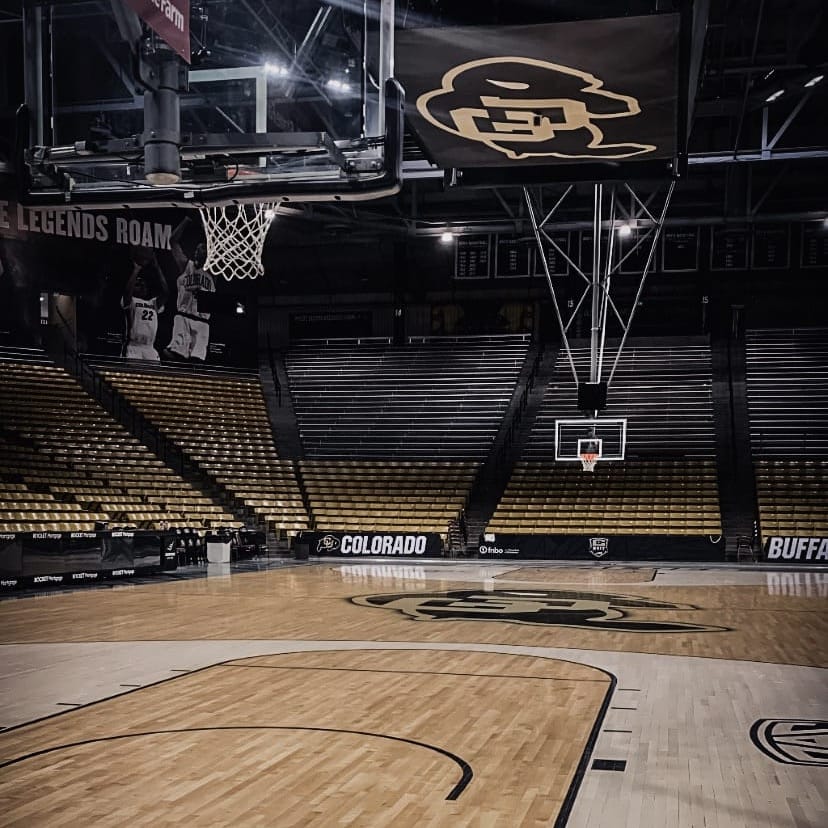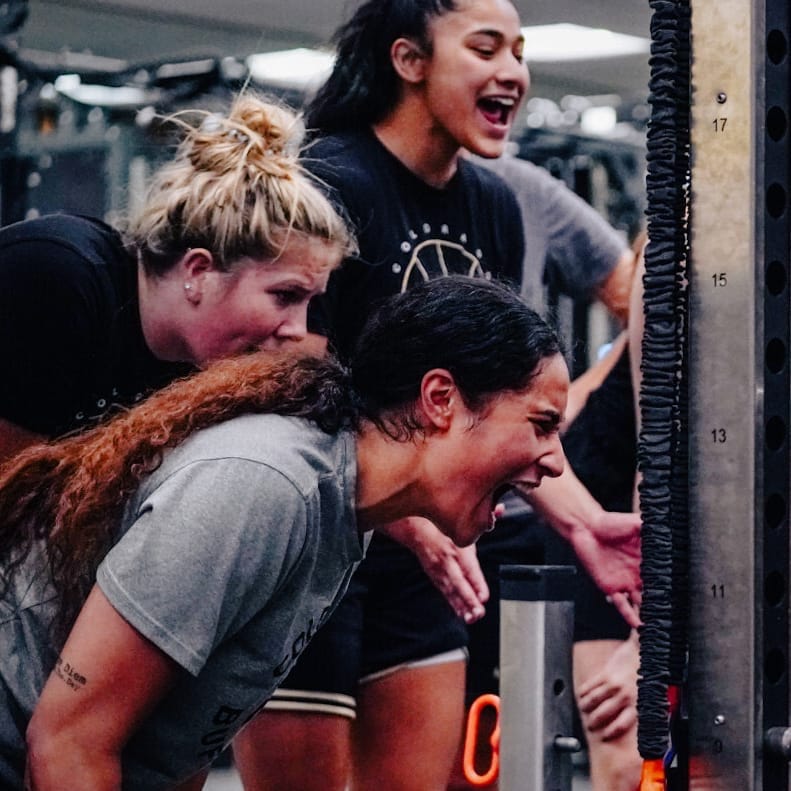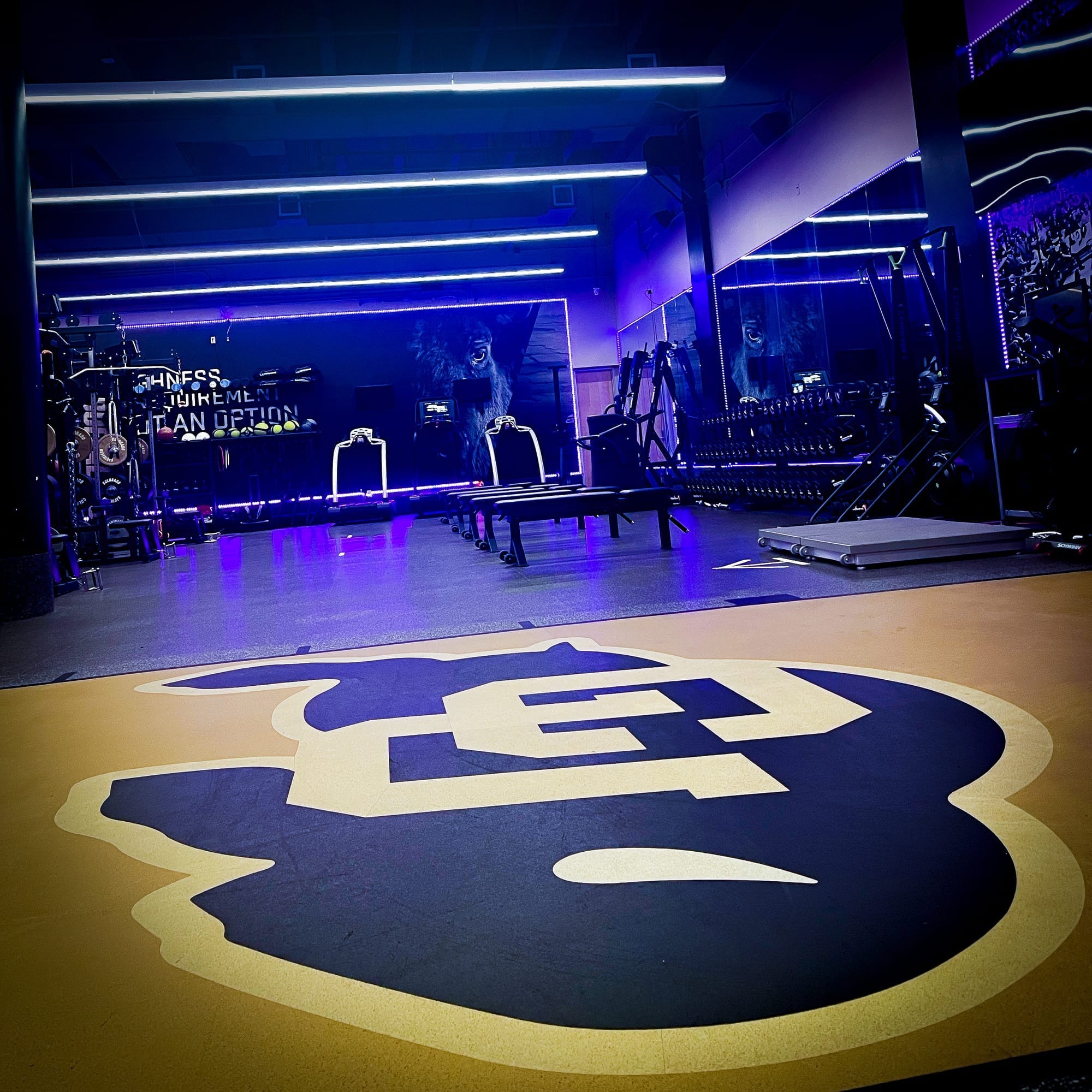So You Want to Be a Collegiate Strength Coach? Some Hard Truths From the Trenches
This no-fluff guide breaks down many hard-earned lessons from coaching D1 athletes in collegiate strength & conditioning. Based on years at Colorado with WBB and Volleyball, it covers trust, results, integrity, and the human side of coaching that actually builds lasting impact.

Let’s cut to it—if you think being a strength coach in college athletics is just about designing training cycles and yelling “drive your knees!” from the corner of the weight room, you’re already missing the mark. This job isn’t about the sets and reps. It’s about people. It's about staying connected, even when your athletes are halfway across the globe playing professionally. It’s about relationships, reputation, and a ridiculous amount of discipline.
Over the years, coaching at the University of Colorado with Women’s Volleyball and Women’s Basketball has taught me more than any NSCA or CSCCa certification ever could. And after helping dozens of former student-athletes continue training remotely while navigating pro careers in Europe, Asia, and the WNBA, I’ve got a front-row seat to what actually makes a coach successful in this field—and what doesn’t.
Here are things every coach SHOULD know before they step into a college weight room thinking they’re ready.
Athletes don’t care about your program until they trust you
You can build the most elegant, research-supported, individualized program known to man—complete with RPE scales, progressive overload schemes, and optimal rest periods—but if the people you're coaching don't trust you, it won't land. Trust is the cornerstone of influence in the collegiate setting. And here’s the rub:
it’s earned slowly, over time, through tiny, invisible acts that may not even feel like coaching.
I've had athletes come into the weight room after tough practices or heartbreaking losses, and in those moments, they weren't looking for velocity zones or bar path corrections. They wanted to know I still believed in them. They wanted eye contact, a consistent tone, and some quiet assurance that the world wasn’t ending.
If you’re just pushing programs and not paying attention to their emotional temperature, you’re not coaching—you’re just organizing workouts.
Trust is built when you show you understand their sport, their body, and their story. It’s built when you know the name of the coach they’re scared of, or the class that’s draining their sleep, or the sibling they call when they’re homesick. It's built when you're the same coach on a Tuesday morning lift as you are on a Sunday recovery session. When you do that enough times? They’ll run through a wall for you. But not before.
You want your program to matter? Make sure your athletes know THEY matter.

Reps matter—but your experience matters more
Sure, the science matters. Your ability to coach movement, teach a hinge, or spot faulty scapular control is essential. But in this profession, experience trumps almost everything—especially in the heat of the moment. When you're face-to-face with an athlete who's hitting emotional rock bottom mid-season, all those CEUs you racked up in the off-season won’t mean a thing if you haven’t lived through it a few dozen times. This is a field where pattern recognition matters. And the only way to develop that pattern recognition? Exposure. Repetition. Time.
At Colorado, I've had days where we’ve had three rehabs running, a lift group on the floor, and a coach knocking on the office door to discuss a change in travel logistics—all at the same time. That’s when the reps matter. You develop a gut for what your team needs. You don’t panic when an athlete tweaks something two days before a game; you pivot. You adjust seamlessly, not because you’re guessing, but because you've been there before. You’ve already made those mistakes.
Experience also helps you zoom out. When a young athlete is frustrated because their squat numbers are stalling, you can show them the long arc. You can help them see the gains they don’t feel—better sleep, faster recovery, improved body language in practice. None of that comes from a textbook. It comes from seeing the same movie play out hundreds of times with different athletes. And it only happens when you show up, season after season, fully engaged and fully present.
The iron teaches, no doubt. But the floor teaches more.
Want respect? Earn it from your medical and coaching staffs first
You might be the most dialed-in strength coach in the building, but if you’re not aligned with the athletic trainer, the sport coaches, or the support staff, your impact will always hit a ceiling. Respect in this space isn’t given because of a title—it’s earned when people see you operate under pressure with calm, clarity, and consistency.
When I first started with our Women’s Basketball program, I quickly realized that our success on the performance side wasn’t going to come from the sets and reps alone. It came from establishing real trust with the athletic trainer who’s managing multiple rehabs. It came from syncing calendars with the ops director to ensure travel loads didn’t spike stress levels mid-week. It came from understanding the rhythms of the season so I could anticipate what the coaching staff needed before they had to ask.
Too many strength coaches operate like they’re on an island, frustrated that their input isn’t taken seriously. But here’s the uncomfortable truth: you have to earn that seat at the table. You earn it by over-communicating during preseason. By backing off when you sense a team is emotionally fried. By offering objective data without ego. And by listening first.
When the head sport coach knows you’ll never compromise the athlete's well-being, they start looping you in on bigger decisions. When the athletic trainer knows you're willing to adjust programming for a return-to-play plan without acting territorial, they advocate for you. When you handle conflict like an adult, and not like a weight room cowboy, your voice starts to carry more weight.
You want respect? Then be the kind of professional others want in the foxhole when things get messy. Because they ALWAYS will get messy.
You don’t get to “have a brand"—you earn one
Your brand isn’t your logo. It’s not the color palette on your training app or the clean font you used on your social media. It’s what people whisper about you when you’re not in the room. It’s how your name lands in conversations—whether it comes with a sense of trust or a shoulder shrug.
In collegiate athletics, especially in high-performance settings like at the University of Colorado, your "coaching brand" is how consistently you show up, day after day, year after year. It's how you carry yourself when you walk into a staff meeting or how you handle a surprise conversation with a recruit’s parents on game day. It’s how you react when your programming is questioned or when your lift gets bumped for a last-minute film session.
The reason former players now playing pro ball still come back to me for guidance isn’t because I marketed myself well. It’s because, for their four-to-five straight years, I was there. I asked the hard questions. I gave a damn when it was inconvenient. I showed up when they didn’t want to. And I kept showing up, even when there wasn’t anything glamorous about it.
When people refer you to others, they're not sharing your resume—they're sharing how you made them feel. Whether or not they could count on you. Whether or not you delivered what you said you would. That’s your brand. So if you’re early in your career and wondering how to build it, here’s the secret: don’t build it. Earn it.
Every rep. Every lift. Every meeting. Every moment.
Brand is what you leave behind when you’re not in the room. Make sure it reflects how you show up when you are.

Integrity shows when no one’s watching
Here’s the truth no one posts about: integrity isn’t measured when your program is trending or when your athlete hits a personal record with half the staff watching. It shows up when you’re alone in the facility, making decisions that no one else will ever see. Do you program each session with fresh eyes and attention to detail, or do you copy-paste last season’s spreadsheet because no one will notice? Do you offer your full attention to the athlete who's struggling and showing up late—or do you mentally check out because they're not one of your stars?
Athletes notice. Staff notices. And you better believe that YOUR LEGACY will be shaped by the things you do when there’s no immediate applause. I’ve seen coaches walk past racks without cleaning up, leave interns hanging with no guidance, or toss together rehab plans just to hit the quota for the day. It may not blow up in the moment, but those habits compound—and not in the direction you want.
What speaks volumes isn’t your Instagram reel—it’s whether your interns see you clean up after yourself, whether your athletes see you treat the third-string freshman with the same respect as the starting All-American, and whether you hold your standards when no one’s looking over your shoulder. I've had players reach out years later not because I got them an inch on their vert, but because I remembered their name when they redshirted, or followed up with them during recovery from a tough injury.
You build a reputation of integrity by doing the small things right, even when it’s not convenient. That means responding to the messages you could’ve ignored. That means showing up to early lifts even when your schedule is slammed. That means standing up for the athlete when a decision behind closed doors doesn't sit right with you. You might not win a popularity contest for it—but you’ll earn something more lasting: trust.
In this profession, integrity isn’t a trait—it’s a daily decision. A muscle you flex in the quiet moments. It’s what you do when no one’s watching, but everyone feels the ripple.
The relationship is the secret sauce
Here’s the thing no one tells you early in your career: you can run the most precise, data-informed, high-performance lift in the world—and it still won’t mean a thing if your athletes don’t feel like you care. Connection is what makes your program stick. It's the glue between the science and the sweat.
With Women’s Volleyball, I’ve watched athletes come into the facility carrying everything—tough losses, family stress, lingering injuries. What matters most in those moments isn’t whether their trap bar load moved 0.85 m/s. It’s whether I noticed the slump in their shoulders, asked a follow-up, and adjusted the session based on how they actually felt—not just what the sheet said. That connection doesn’t just make your coaching more human—it makes it more effective.
When your athletes feel seen and safe, they give more. They push harder. They communicate better. And that carries well beyond the season. I still get messages from former student-athletes now playing in the WNBA or overseas, not because they need a program—but because they want to stay connected to someone who believed in them when things were messy, not just when they were winning.
You don’t build that kind of trust with perfectly timed cues or beautiful Excel sheets. You build it by listening deeply. By following up on something small they mentioned a week ago. By staying calm when they fall apart. If your relationship is strong, they’ll lean into discomfort and let you coach them through it. But if the trust isn’t there? Even the best periodized plan falls flat.
Want to know what separates good from great in this field? It’s not the tech. It’s not the templates. It’s whether your athletes know, without a doubt, that you care about them as PEOPLE—not just performers.

Results are table stakes
Let’s be honest—no one is hiring you JUST to get results. Results are assumed. They’re the cover charge. If you’re working in collegiate athletics, it’s expected that you know how to program for strength, power, speed, and resilience. It’s expected that you’ll help your athletes improve their vertical, decrease injury risk, and maybe even shave a tenth off their ¾ court sprint.
That’s not impressive anymore. It’s the bare minimum.
What separates real coaches from program writers is how they deliver those results—and how those results sustain under stress. The real game is in keeping a freshman upright in her first full spring after redshirting. It’s in making sure your starters don’t crash and burn in March when the tournament games stack up and sleep gets sacrificed. It’s knowing how to subtly taper loads during an emotionally exhausting finals week—not because anyone told you to, but because you’re paying attention.
At Colorado, our Women’s Basketball team has had some deep post-season runs. That’s when your programming chops are tested. Can your athletes stay fresh? Can they still move the bar with intent? Can they trust that you’re guiding them with long-term durability in mind, not just today’s performance? These aren’t questions answered in a training block.
They’re answered over seasons. Years. Careers...
That’s why the pros I coach remotely still reach out. Because they know I don’t just build plans—I build continuity. I track patterns. I make adjustments based on the real human in front of me, not just the athlete on the screen. Results? We’ve got those. But what I’m more proud of is helping women stay healthy and empowered long after their college eligibility ends.
Results are table stakes. Excellence is how you deliver them under pressure, over time, with a personal touch.
Stop cherry-picking athletes
One of the biggest pitfalls I’ve seen in strength and conditioning is coaches who only showcase and work with the “shiny” athletes—the ones who respond perfectly to training, never miss a session, and make programming look effortless. Sure, those highlight reels and social media posts catch eyes, but here’s the kicker: real growth happens when you tackle the tough cases.
At Colorado, I’ve worked with athletes who bring more than just talent to the table—they bring complexity. Maybe it’s a volleyball player managing chronic hip pain, or a basketball player battling mental fatigue during a brutal exam week.
Those situations force you to problem-solve creatively, dig deep into movement assessments, and sometimes rewrite your playbook entirely.
That’s where coaching becomes an art, not just a science.
If you only stick to “easy” athletes who check all the boxes, you’re robbing yourself of crucial experience. How do you learn to spot a subtle movement compensation if you’ve never coached an athlete with a history of multiple injuries? How do you develop empathy and patience if you never meet a player struggling to juggle academics, family, and sport?
I’ve had athletes come to me after bouncing around other programs without progress. Some were dismissed as “hard cases,” but with tailored care and persistence, they’ve gone on to compete at professional levels overseas or in the WNBA. Those stories are a testament to what happens when you commit to every athlete’s journey, not just the ones who fit a perfect mold.
And let’s be honest—those “easy” athletes often have genetics or external support systems giving them an edge. But when the lights get bright and the grind intensifies, it’s the resilient, well-managed athletes who stick around and perform consistently. That kind of resilience? You cultivate it when you’re willing to get your hands dirty with the hard cases.
So, if you want to grow as a coach—and truly make a difference—stop cherry-picking. Lean into the messy, complicated challenges. Your future self (and your athletes) will thank you.

Every text, every session, every moment matters
In this line of work, small moments add up to big impressions. Whether you’re responding to a quick question from a current collegiate athlete juggling classes and practices or checking in on a former player training thousands of miles away, your responsiveness speaks volumes about your commitment. I've answered questions from athletes waiting in airport lounges, tapped out detailed feedback while on the road, and jumped on video calls late at night—all because I know those little touchpoints build trust and show that I’m present, no matter the time zone or circumstance.
A "departmental rebrand" wouldn't ever sacrifice what it takes to deliver that level of trust. That's a WHOLE different investment in the Athlete's experience.
Here’s the thing—consistency in communication isn’t just about being polite; it’s about showing your athletes they’re valued beyond their PRs or game stats. If you leave messages hanging or delay critical feedback, it can shake their confidence in the program and, by extension, in you as a coach. And trust me, in a profession where trust is everything, that kind of breakdown can be costly.
I remember an instance with a former volleyball player now overseas who sent a late-night text about tweaking her nutrition after a tough match. My timely response helped her adjust her recovery strategy immediately, and that small moment made a huge difference in her training week. Moments like that—when an athlete feels heard and cared for—can cement loyalty for years.
On the flip side, if you treat these moments as interruptions or nuisances, your athletes will sense it. They’ll pick up on the tone, the delay, the lack of follow-through. Money shouldn’t be your only motivation here. If it is, you’re in the wrong game. The best coaches I’ve known are those who care deeply about every interaction, big or small, because they understand that it’s these micro-commitments that create lasting impact.
So, if you want to be the kind of coach athletes respect and want to follow—even when you’re not in the same room—start by mastering the little things. Show up in every text, every session, every moment.
Know what you’re worth, but earn it every day
Pricing yourself isn’t just a numbers game—it’s a reflection of the value you consistently deliver. In collegiate strength and conditioning, your worth isn’t determined by a rate card or a fancy title; it’s earned in sweat equity, the late nights reviewing data, and the quiet moments supporting athletes through setbacks.
When I started working with former student-athletes who transitioned to pro careers overseas or in the WNBA, one thing became crystal clear: they keep coming back—not because of a price, but because they trust me to guide them through uncharted territory.
Remote coaching isn’t just about sending programs; it’s about providing ongoing accountability, individualized adjustments, and emotional support from hundreds or thousands of miles away. That kind of service demands dedication, expertise, and yes, it deserves to be compensated fairly.
But here’s the tricky part—charging what you’re worth means being brutally honest with yourself. Are you truly delivering beyond cookie-cutter plans? Are you showing up with more than just knowledge—are you bringing empathy, insight, and a genuine investment in each athlete’s journey? If the answer is yes, then stand firm in your value. If not, then keep grinding, keep learning, and keep refining until your price matches your impact.
One thing I’ve learned through my years at University of Colorado and remote coaching is that athletes won’t argue about your fees when they’re confident in your service. They’ll gladly pay for a coach who knows their story, understands their struggles, and adapts programming with precision and care. But if you undervalue yourself, you risk attracting the wrong kind of client—those shopping for the cheapest option rather than a true partner in performance.
So, find your worth, but remember—it’s not a static number. It’s a daily pledge to be better, smarter, more present. It’s earning respect with every session and every message. It’s showing up when others don’t.
Price is just a number. Your true worth is the trust and results you build over time.

